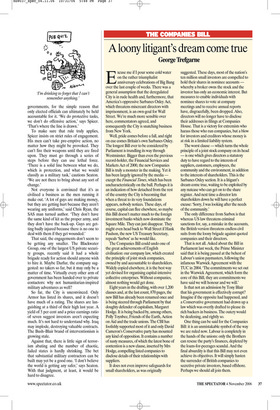‘I’m drinking to forget that I can’t remember anything.’ governments,
for the simple reason that only elected officials can ultimately be held accountable for it. ‘We do protective tasks, we don’t do offensive action,’ says Spicer. ‘That’s where the line is drawn.’ To make sure that rule truly applies, Spicer insists on strict rules of engagement. His men can’t take pre-emptive action, no matter how they might be provoked. They can’t fire their weapons until they are fired upon. They must go through a series of steps before they can use lethal force. ‘There is a solid line between what we do, which is protection, and what we would classify as a military task,’ cautions Seaton. ‘We are not there to bring about any sort of change.’ Not everyone is convinced that it’s as civilised a business as the men running it make out. ‘A lot of guys are making money, but they are getting hurt because they aren’t wearing any uniforms,’ said Chris Ryan, the SAS man turned author. ‘They don’t have the same kind of kit as the proper army, and they don’t have the back-up. Guys are getting badly injured because there is no one to deal with them if they get wounded.’ That said, the engagements don’t seem to be getting any smaller. The Blackwater Group, one of the largest US private security groups, recently said it had a whole brigade ready for action should anyone wish to hire it. Maybe Darfur, the company suggested: no takers so far, but it may only be a matter of time. Virtually every other arm of government has been handed over to private contactors: why not humanitarian-inspired military adventures as well?
So far, the City is unconvinced. Only Armor has listed its shares, and it doesn’t have much of a rating. The shares are languishing at a third of their high last year. A yield of 5 per cent and a price earnings ratio of seven suggest investors aren’t expecting much. It’s not hard to understand why. Iraq may implode, destroying valuable contracts. The Bush–Blair brand of interventionism is growing stale.
Against that, there is little sign of terrorism abating and the number of chaotic, failed states is hardly shrinking. The bet that substantial military contractors can be built may yet be a good one. ‘I don’t believe the world is getting any safer,’ says Seaton. With that judgment, at least, it would be hard to disagree.


















































































































 Previous page
Previous page